What we’ll cover:
1: Night feedings: Is my baby waking because he’s hungry or out of habit?
2: “My baby is awake in the crib at night, but not crying”
3: “My baby wakes up 45 minutes after bedtime”
4: “My baby stands or sits up in the crib, instead of sleeping”
5: “My toddler won’t stay in her bed”
6: How to handle night wakings with a sick baby
“Why in the world is my baby waking during the night?” (asks every exhausted parent at 3 am.) The reason why your baby or toddler is waking up at night could be totally appropriate- like hunger. Maybe your young baby still needs night feedings or perhaps your baby is sick and needs more comfort than usual. Also, when babies learn new skills, like sitting up or standing, they want to practice for hours at night.
Lots of babies get trapped in a pattern of waking 45 minutes after bedtime. (Just as their parents are getting settled into Netflix…) Many toddlers refuse to stay in their beds after they transition to a big kid bed. There are a variety of reasons why your baby or toddler is waking at night. This article takes the guesswork out of it for you and helps you figure out the cause of why your baby is having night wakings. Plus, it gives you solid baby & toddler night waking tips to get your little one sleeping through the night.
This post may contain affiliate links.
Common Baby & Toddler Night Waking Problems
(& how to fix them)
1: Night feedings – Is my baby waking because he’s hungry or out of habit?
First, it depends on your baby’s age. Young babies need to eat during the night. But as your baby gets older, he can eat more during the day and less at night.
Ask your pediatrician how many night feeds your baby needs and set that as your goal.
If your baby is gaining weight and growing well, you can expect him to eat this often at night:
Newborns: Every 2-4 hours
2-3 month olds: 2-4 night feedings
4-5 month olds: 1-3 night feedings
6-12 month olds: 0-2 night feedings
13+ month olds: NONE
If your baby takes more night feeds than the guidelines above, chances are the extra feeds are “habit” feeds.
Now that you know how many night feeds your baby needs (if any) it’s time to start reducing them. As you slowly reduce night feeds, your baby will eat more during the day to compensate.
If you want to wean off night feeds, but aren’t sure how, check out my detailed Weaning Night Feedings Guide that walks you through it all.
2: “My baby is awake in the crib at night, but not crying.”
This doesn’t pertain to your baby crying and being hard to settle. Instead, it’s when your baby is awake in the crib but not crying, for a long time (sometimes hours). Your baby may seem happy and energized, which is the exact opposite of how their parents feel at that hour!
The 2 reasons babies are wide awake at night are:
Reason #1: Developmental milestones
Learning to sit up, stand, walk and talk are BIG milestones for babies. During these developmental bursts, it’s hard for your baby’s brain and body to “shut off” and sleep for 12 hours straight. Instead, they want to wake up and practice their new skills.
If your baby or toddler is not crying, give them space. The quicker they master a new skill, the quicker they’ll sleep again. Yes, they may lose sleep for a few nights. But I promise, this is a temporary phase as long as you leave them to sort it out on their own.
If you start laying your baby down every time she sits up or stands, you’ll quickly find yourself caught in a never-ending game of “jack-in-the-box.” Also, let your baby practice new skills throughout the day. This helps them burn off extra energy and master new skills soon.
Time spent outdoors is essential for deep, restful sleep. It stimulates your baby or toddler in a different way, burns off mental and physical energy and helps babies settle easier at bedtime and sleep better at night.
Reason #2: Schedule issues
If your baby naps too much, they won’t be tired enough to sleep through the night.
(And just to confuse you) if your baby doesn’t nap enough, over-tiredness can wake them more at night.
If your day sleep is appropriate and your toddler is waking up too early check out my early wakings guide.
Your baby’s naps should TOTAL each day:
3-4 months: 3-4 hrs
5-24 months: 2-3 hrs
2-3 yrs: 1-2 hrs
That’s total daytime sleep (combination of all naps). If your baby is younger than 3 months, don’t limit their naps. Here are my sleep guides for newborns and 2-month-olds and for 3 month olds.
Following age-appropriate wake windows is important. Babies can’t handle being awake for long stretches during the day. They need to “recharge” their brains and bodies often. This keeps them from becoming overtired, which can cause your little one to wake more (or longer) at night.
Your baby’s wake windows should be:
2-3 months: 1-2 hours
4-5 months: 1.5-2.5 hours
6-8 months: 2-3 hours
9-12 months: 2.5-3.5 hours
Toddler taking 2 naps: 3-4 hours
Toddler taking 1 nap: 4-6 hours
Once your baby naps enough and has the right wake windows for their age, their nighttime sleep will improve tremendously! These baby and toddler night waking tips will make a huge difference.
3: “My baby wakes up 45 minutes after bedtime”
Does this scenario sound familiar? You’ve just spent an hour getting your baby to sleep at bedtime. You feed him to sleep, then gently ninja him to his crib and tiptoe out of the room. Or maybe your baby goes into the crib drowsy (you’re sure he’s still slightly awake) and falls asleep there.
But for some reason, your baby wakes up 45 minutes after bedtime and you have to repeat the process all over again.
In most cases, there are two main reasons why babies “false start” and wake soon after bedtime. Either they haven’t learned how to fall asleep independently or they’re overtired.
Reason #1: Your baby receives help to fall asleep.
No blaming or judgment here! We’ve all been there. But if you help your baby fall asleep at bedtime, he’s going to need your help each time he wakes or stirs during the night. It’s common for babies to stir after the first sleep cycle of the night (40-50 minutes after bedtime).
The remedy for this is to teach your baby to fall asleep independently at bedtime, so he will know how to resettle himself each time he stirs at night.
“Falling asleep independently” means your baby goes into the crib at bedtime with his eyes wide open and falls asleep without you in the room. If you’re doing anything other than this, this waking pattern will continue.
Teaching your baby to fall asleep independently is an essential step towards sleeping through the night. I help parents learn how to teach their babies this vital skill in my proven sleep training program 21 Days to Peace & Quiet.
Reason #2: Your baby is overtired.
Over-tiredness can make babies fight falling asleep, wake more often at night, and wake early in the morning. Babies become overtired either because they’re not getting enough overall sleep OR wake windows are too long.
To prevent your baby from getting trapped in an overtired cycle, make sure he sleeps 13-15 total hours each day (naps and night sleep). I love the Huckleberry app to track sleep.
It’s also important to follow age-appropriate wake windows (see #2 above).
Once your baby’s wake windows are right on target and they learn to fall asleep independently, these “45 minutes after bedtime wakings” will disappear!
4: “My baby stands or sits up in the crib, instead of sleeping.”
This is one of the top questions I get asked by parents. “How do I handle it when my baby stands or sits up in the crib, instead of sleeping?”
Your baby learning to sit up and pull to stand are BIG accomplishments! The second part of that development (being able to get back down) comes several days later.
It’s completely normal for your baby to sit or stand up in the crib and not be able to get back down. They’re in “developmental limbo.” As cute as it is seeing your chubby cherub smiling on the video monitor at 3 am, it can also be really tiring and frustrating for parents.
When your baby sits up or stands in the crib, and can’t (or won’t) get back down, the BEST thing you can do is:
- In the first days when your baby is “stuck”, go in and lay him back down once. Then, if he pops back up right away, wait 3-5 minutes before helping him again. Otherwise, it could become a fun game for him.
- Give your baby lots of floor time during the day to practice new skills. Let your baby also practice in the crib during the day. Don’t always help your baby right away. Give him time to work it out on his own.
If you know your baby CAN get back down on his own (but is just refusing to), then the best approach is to give him space. This helps him understand that he needs to do it on his own. You can also try sitting on the floor next to the crib and patting the mattress to encourage him to lie down. The more you encourage independence, the quicker baby will start sleeping all night.
5: “My toddler won’t stay in bed”
A toddler that keeps getting out of bed in the middle of the night is a common frustration after transitioning out of the crib.
Your child’s sleep boundaries have disappeared. So it’s normal for them to wander out at bedtime or during the night to see what they might be missing. Just because it’s normal doesn’t mean it’s not frustrating or tiring, though.
I recommend leaving your toddler in the crib as long as possible. Because once their sleep boundaries are gone, it’s difficult to prevent nighttime roaming.
There’s nothing wrong with a 3 or 4 year old sleeping in a crib! Only consider transitioning out of the crib when your child repeatedly climbs out.
Encouraging your toddler to stay in bed all night takes effort, but it can be done. Here’s my guide that walks you through keeping your toddler in their bed at night.
Check out my new Big Kid Sleep Made Simple program! The program addresses sleep disturbances that occur in children ages 2-6 years of age and offers step-by-step instructions and guides to get your toddler sleeping (and staying) in their own bed!
RELATED: How To Stop Your Toddler Waking at 5 am Everyday
6: How to handle night wakings with a sick baby
When we adults are sick it’s harder to sleep, right? Same goes with our little ones. So don’t feel any guilt about good sleep routines “moving backwards” if you have a sick baby.
In my sleep training program, I recommend that parents pause sleep training if they have a sick baby. Our babies need comfort (and sometimes more night feeds) when they’re not well.
So if your baby is waking up in the middle of the night, and obviously sick with symptoms like fever, vomiting, diarrhea, coughing, congestion or loss of appetite- give them comfort as needed. Giving extra night feeds is also ok, especially if your baby is not eating well during the day.
You can always get your baby’s sleep back on track once they’ve recovered.
Also, let your baby sleep as much as they need. There’s no need to limit naps or wake your baby up at a certain time in the morning.
If you can manage to keep your baby sleeping in the crib, that’s great. It’ll help your baby bounce back to independent sleeping once they’re well.
Once your baby is off any medications and has perked up, you can reinstate your sleep routines and restart sleep training
Tips to help your sick baby sleep well:
- A warm bath opens up stuffy noses so mucus can clear. Try “milking” your baby’s nose while they’re in the tub, to help the snot drain.
- Most moms agree that a nasal aspirator (AKA “snot sucker”) like the Nose Frida is a must-have! Clear out your baby’s nose before each nap and at bedtime.
- Use saline drops or spray to unblock a stuffy nose, then use your snot sucker.
- A chest rub (like Baby Vick’s or a natural one) can soothe and open up baby’s congested nose for hours. Put a tiny amount (size of a pea) on baby’s chest, back and bottoms of the feet at bedtime.
- Use a humidifier in baby’s bedroom. Humidity helps prevent dry coughs from waking up your baby.
- Some moms love using diffusers with “breathe easy” or calming oils in baby’s bedroom. Some humidifiers have a tray to add essential oils too.
- Ask your pediatrician about pain / fever reducers like baby Tylenol or Motrin. They can ease aches and pains and help baby sleep long stretches at night.
If your baby is 5+ months, you can start sleep training once they are well with my program 21 Days to Peace & Quiet.
Final Thoughts
There are many reasons why babies wake a lot during the night. Whether it’s due to extra night feeds, developmental milestones, sickness or just habits that need to be changed- there’s always a way to get your family sleeping through the night!
If your toddler is older than 13 months old, you can be confident that they no longer need night feedings. I can help you lessen your baby’s night wakings, while still keeping night feeds, if appropriate, in my gentle sleep training program.
FAQs
Why do babies wake up at night?
When your baby is younger than 6 months old frequent overnight awakenings are often caused by the need to feed often, your baby’s stomach is only able to stay full for a few hours at a time, so they need to feed often overnight as well. However, as your baby gets older and develops more adult-like sleep patterns, frequent night wakings are caused by needing our input in order to get back to sleep, too much or too little daytime sleep, or a need for a change in sleep environment.
How to handle your baby’s night wakings?
If your baby is still young, check out my 3 month old guide for some helpful tips on how to set a peaceful bedtime routine and healthy sleep foundations. When your baby or toddler is 5 months and older my gentle sleep training program has ALL the information you need to tackle all different night wakings, due to sleep props, sickness and regressions.
How do I get my baby to fall back asleep independently?
The BIG trick to getting your baby to fall asleep independently is getting them to fall asleep independently at bedtime without you in the room. This can seem super daunting but my sleep training program works through this gently by changing things gradually to set you up for success.
Is my toddler waking from nightmares?
Nightmares can start around 2 years old, but peak around 3 to 6 years old so this could definitely be contributing to your little one’s night wakings. Tweaking things during the day that could be triggering these nightmares; particular books or tv programs can really help. My Big Kid course has ALL the information you need to deal with night wakings in older toddlers.



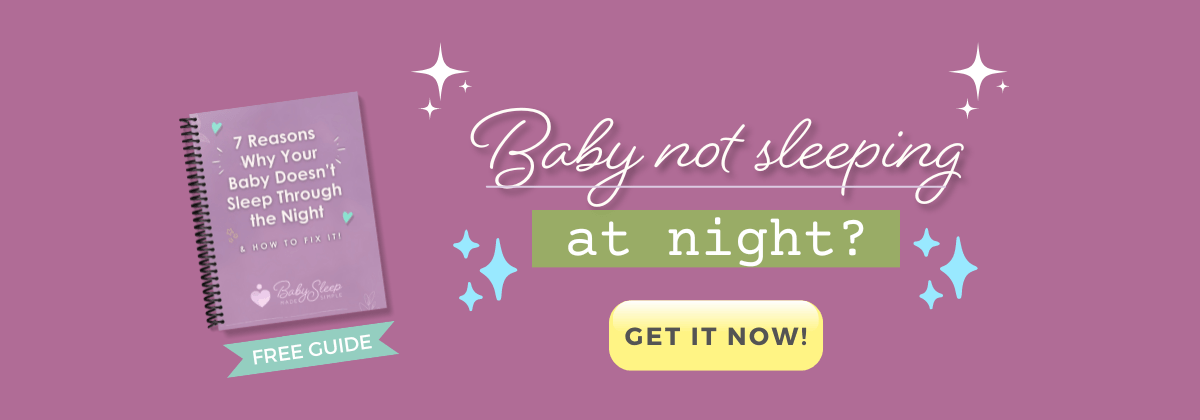
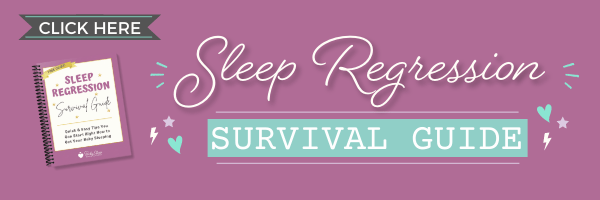



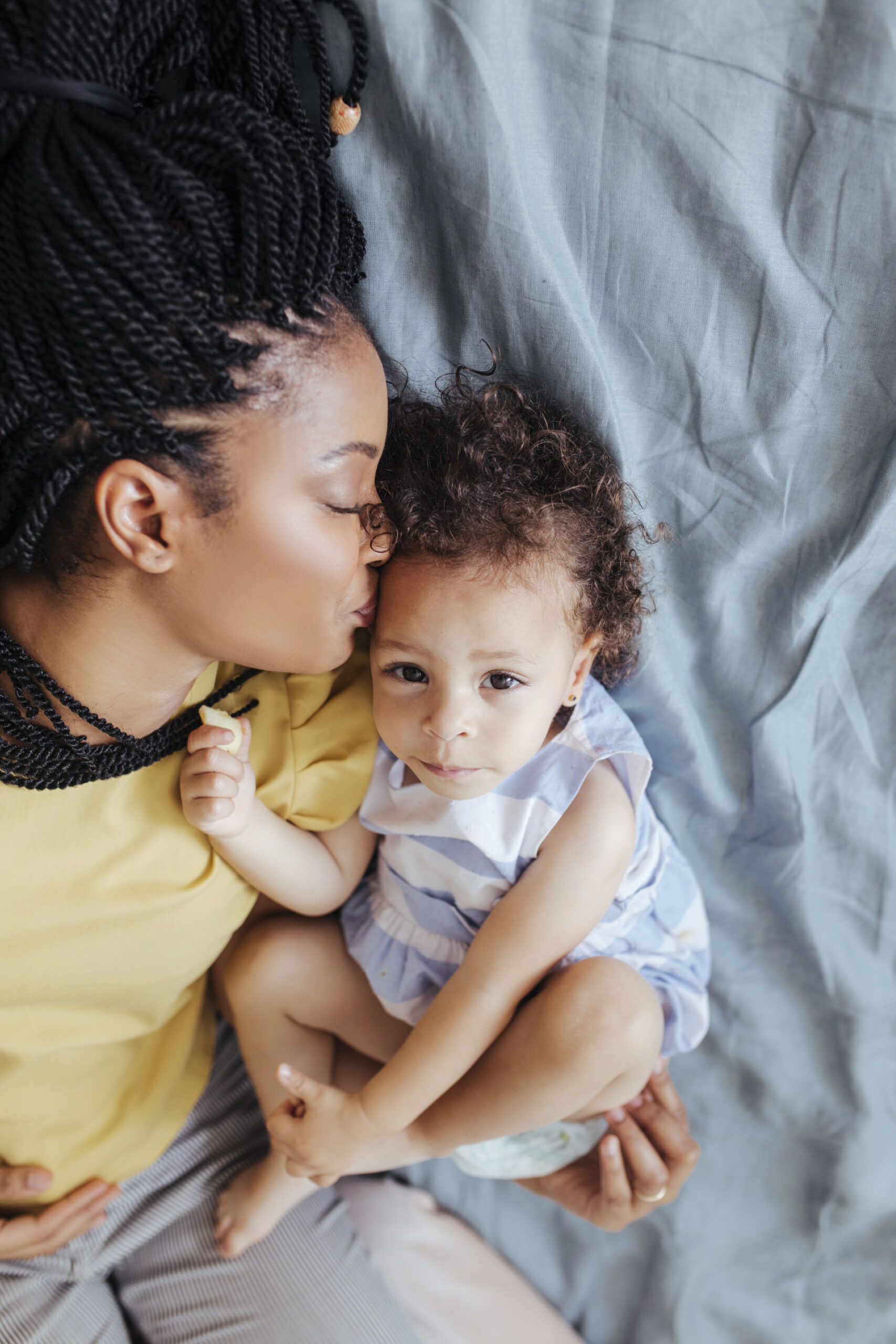
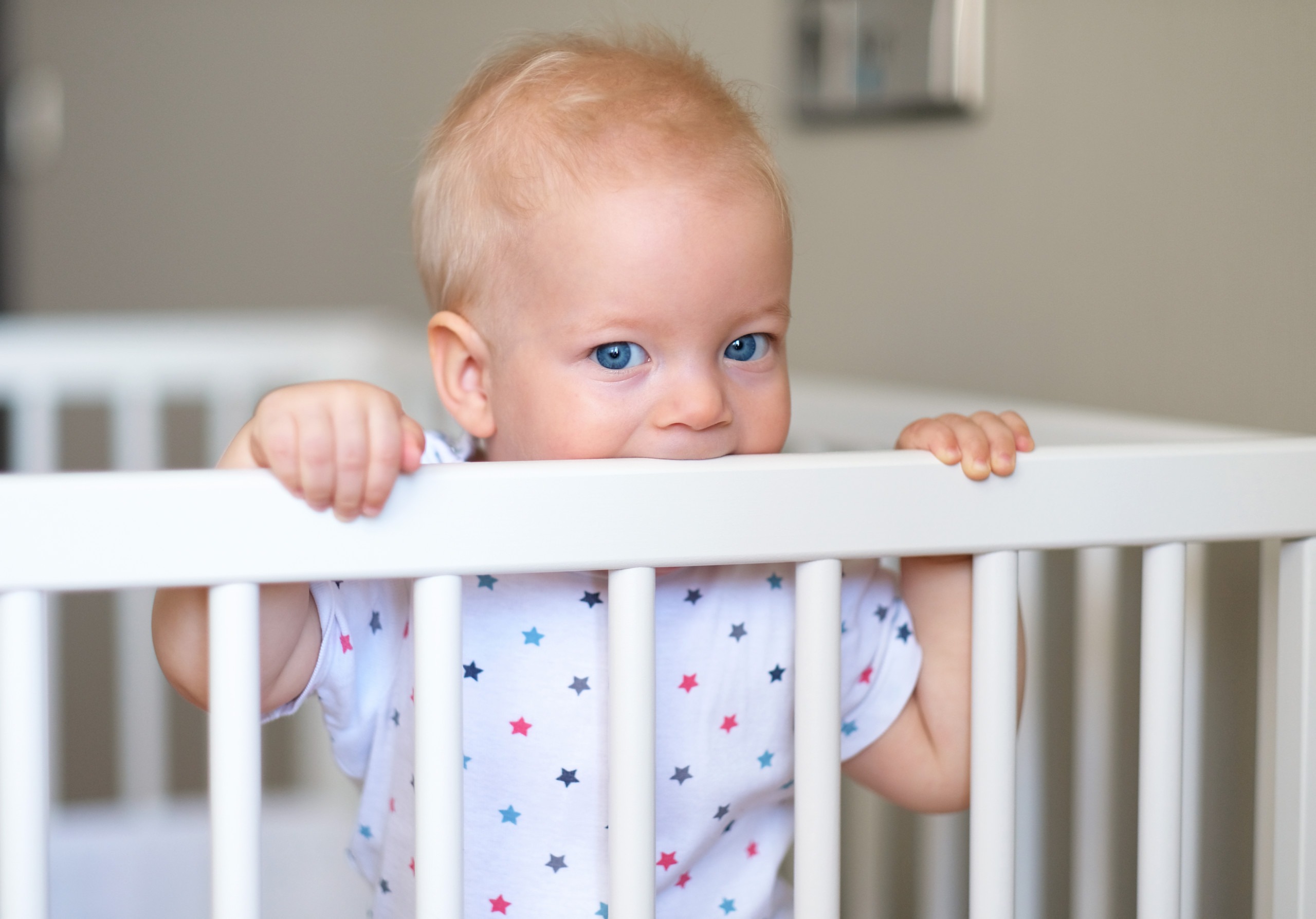




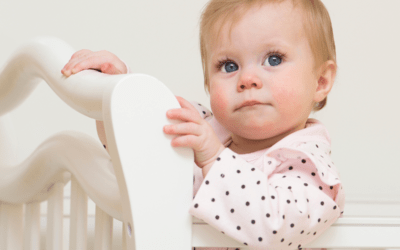

Your “awake times” don’t make sense to me. Are you saying that 13 month old should only be awake a total of 3-4 hrs a day? I’m sure I misunderstood that section.
This is a great question!
So, a 3-4 hour awake time, means that your little one should only be awake 3-4 hours in between their ‘sleeps’.
For example, if your little one wakes up at 7 am, they should only be awake 3-4 hours until their nap. So at the 3-4 hour mark after wake up time, they’re asleep again.
Does that make sense? If you need a bit of guidance, we’d love to talk to you on a call:
https://programs.babysleepmadesimple.com/30-minutes-private-consultation-checkout/
Have a great week!
Artemis, BSMS Support Team
My baby is 6 months and goes to daycare. He doesn’t get many naps in so he is over tired and will always wake up an hour after bedtime. Since he is over tired is there any hope to get him to stay asleep while going to daycare?
Hi Christina!
Sorry to hear this, this is a very common issue.
Our Naps program goes into detail about all of this, we even have a specific guide for daycare naps! We would love to have you in the program. Here is the link:
https://www.babysleepmadesimple.com/naps-getting-downtime-in-the-daytime/
Let me know if you have any questions, otherwise, I’ll see you on the other side!
Artemis, BSMS Support Team
My son is 13 months old and sleeping is the biggest challenge I have. I’m doing this completely solo without any hands to help. Night routine is really hard when your baby wants you to hold him the entire day. I’m also a first time mom and this helped me see that though I want to learn and do things right, I just need to step back and let him figure things out. Independence is one of the most important things in life to me and ironically I spoil my son where sleeping is not on my sons mind.
Hi Rebecca,
Sorry to hear sleep is such a struggle for you. It’s hard, I understand!
We help parents like you every day to teach their babies to LOVE the crib, fall asleep peacefully, and sleep through the night. We would love to help you, as well.
You can sign up for our great sleep training program here:
https://www.babysleepmadesimple.com/baby-sleep-consultant/
Can’t wait to possibly work with you!
Artemis, BSMS Support Team